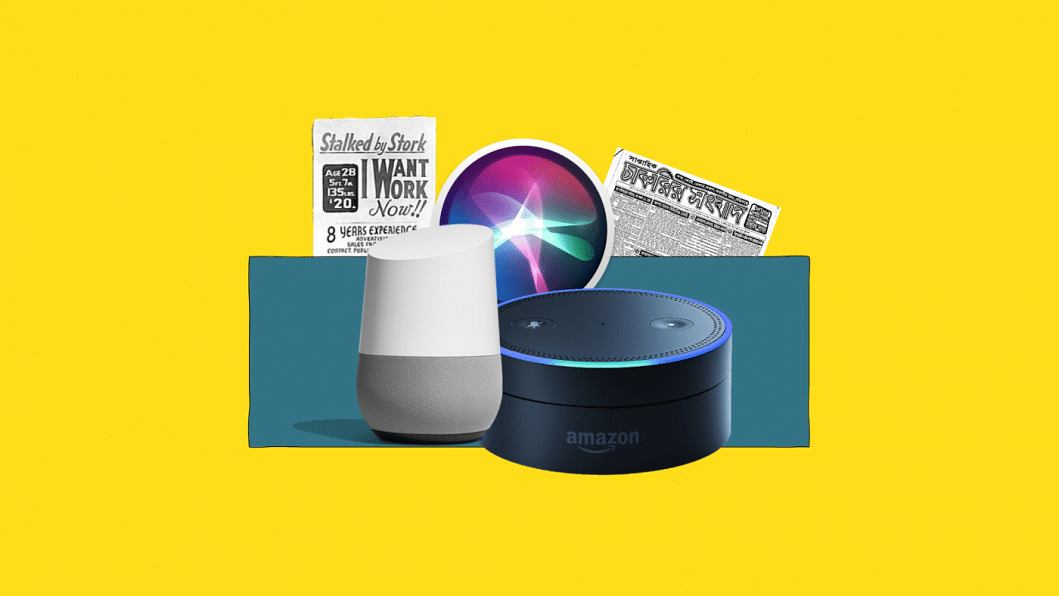Will Alexa take my job away?

Siri & Alexa are our regular examples of conversational AI, mostly used for checking the temperature or playing music by its users with some occasional assistance to Google questions the user is too busy to type. The artificial intelligence industry, however, has not stopped at making voice assistants for your amusement. The conversational AI industry is predicted to reach a value of $15 billion by 2024 according to a recent study by P&S Intelligence. The AI solutions' services are not limited to mere chatbots anymore and are expanding to all sorts of different services that involve communication and administrative assistance, call centre jobs and many more.
These AIs are being designed to perform all sorts of customer-related tasks in a more time-efficient manner and eliminating the probability of human error. The chatbots will deal with your queries about credit card blocks while being aware of your emotional standing from your tonality, choice of words, and frequency of the voice. Although the question remains whether AI services can fully mimic human emotions like empathy and such, many are still concerned about how AI will threaten day-to-day jobs.
Call centre jobs to face the biggest threat since their services are mostly regarding synthesizing information for the customers' benefit, something an AI can replace with greater accuracy due to its higher analytical ability. Call centre agents have to rely on their own speed to pull up necessary data to aid in their clients' concern, whereas an AI can do the same thing in a shorter period. They are designed to be connected to a wide array of networks and the development of their listening ability will allow them to communicate information from their wide network effectively.

Shafkat Alam, CEO of Hifi Digital, believes AI revolution will reduce the number of repetitive jobs and allow for more creative solutions. According to him, "AI improves customer services. For any particular product, if you needed to contact customer service, chances are others have reported the same issue at some point in time. The AI allows the service provider to recognize this pattern and have possible solutions ready."
Especially in times like this, when organisations worldwide are looking to cut their human resources, AI-based call centred jobs could take the centre stage for industries that need them. Response.ai, a Florida based AI-powered call centre service is an example of how AI could be the future of call centres.
If history teaches us anything, it's that jobs will be replaced or enhanced with disruptive technologies of one form or other. But conversational AI is not here to cut jobs only. It is projected to enhance the quality of existing jobs and give birth to newer ones. For example, chatbot implementation providers believe that a conversational AI should always be paired with a human supervisor. AI-powered chats can become too routined and as a result, it will not be able to respond to queries by clients and customers who come up with new problems. The program will then have to redirect the client's queries to the supervisor, which essentially will make these services more competent.
Rawnak Zaheen, Regional HR Executive at British American Tobacco, tells us that conversational AI is already in use globally within its HR and IT virtual help-desks to help employees with basic functions like finding relevant policies and requesting services. If HR and customer services are dependent on a basic Q&A format of work, then they are most certainly on their way to become redundant and replaced by a chatbot. However, Rawnak Zaheen believes, "If HR jobs are centred around analytics and insight generation to better craft customer service strategy and help build better systems, that are intuitive, user friendly and meets employer and customer satisfaction, then these jobs are unlikely to go away. In fact, that is how most "customer-facing" HR jobs in future-fit organizations look like already."

Despite the promise of complementing human jobs, it is undeniable that certain jobs are going to become obsolete or fully replaced. Executive assistants, office secretaries, and receptionists who are solely responsible for providing accessible information or scheduling management will find it harder to survive in the market.
However, industry leaders like Rhonda Scharf, believe conversational AIs can co-exist with a human overseeing the jobs as long as administrative assistants learn to adapt and update their services. One of these updates can be learning the algorithmic features so that they can manage the AI, monitor the AI, and train the AI with new knowledge. Conversational AI exists to mimic human behaviour and expressions, so it is crucial that they work in human existence so that they can learn more ways to communicate with human interaction.





Comments